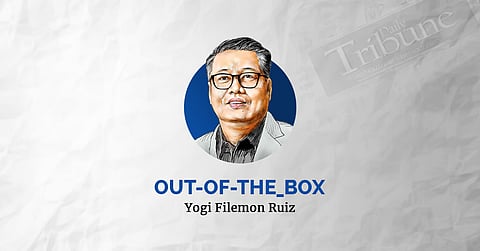
- NEWS
- the EDIT
- COMMENTARY
- BUSINESS
- LIFE
- SHOW
- ACTION
- GLOBAL GOALS
- SNAPS
- DYARYO TIRADA
- MORE

The recent courtesy resignations of senior government officials and the reappointments and new appointments made by President Ferdinand Marcos Jr. reflect his preference for experienced experts, especially in the economic sector, as well as those who are loyal to him in other areas.
The complexities of governance require a team with experience and innovation to effectively tackle both longstanding and emerging issues as the Marcos administration recalibrates its priorities for the latter half of the President’s term.
Although some reappointments have raised serious concerns, we must remember that as subordinates of the President, they should have his trust and confidence. Reappointment should be based on their competence, integrity, and alignment with the President’s vision rather than blind loyalty.
The inclusion of experienced hands in government can provide a wealth of knowledge that is invaluable in policy formulation and implementation. Similarly, reinstating old hands who had served well but were removed due to political intrigue and internal party disputes is another option if the President wants to achieve good results.
Many of these individuals have navigated the intricacies of government operations, which can drastically reduce the learning curve for new initiatives. Their familiarity with the bureaucracy can lead to smoother processes and improved communication across departments, ultimately resulting in more effective governance.
The government is currently facing several pressing challenges, including economic recovery from the pandemic, infrastructure development, and social issues such as poverty and education.
However, communication regarding these issues has not been effectively conveyed to the grassroots level, primarily due to the disorganization and ineffectiveness of the President’s communications team. Changes need to be made in that direction.
The people, as indicated on the ballots, have spoken. The chilling message sent back to Malacañang signifies a troubling rejection of the President’s personal choices in the May national elections. He should view this not as a personal affront but as a clear signal from the people that they are seeking change and a more responsive government.
Seasoned leaders can offer them the stability and strategic insight needed to address today’s complex challenges effectively. By combining time-tested methodologies with innovative strategies, they can navigate obstacles with confidence. They understand the importance of engaging with younger audiences and embracing contemporary approaches that align with their values and expectations.
The balance between tradition and modernity not only fosters inclusivity but also ensures that the solutions implemented are relevant and impactful across diverse demographics.
Recruits with firm managerial qualities can have perspectives and innovative ideas that specifically address the evolving needs of today’s challenges, which experienced leaders, due to their established ways of thinking, might overlook or have yet to encounter.
The infusion of new concepts can spark creativity and drive change within organizations. When these new leaders collaborate with seasoned professionals, they create a powerful synergy that leverages their combined expertise and experience.
The partnership not only enhances decision-making but can also lead to more comprehensive solutions. By valuing both innovation and experience, organizations can navigate today’s complex landscape more effectively.
A shake-up in government can inject new energy into an administration that may risk becoming stagnant. While experience is critical, there is also a need for fresh perspectives and innovative ideas.
By pairing experienced officials with new talent, the administration can create a balance that fosters creativity while still grounding proposals in historical context and best practices.
